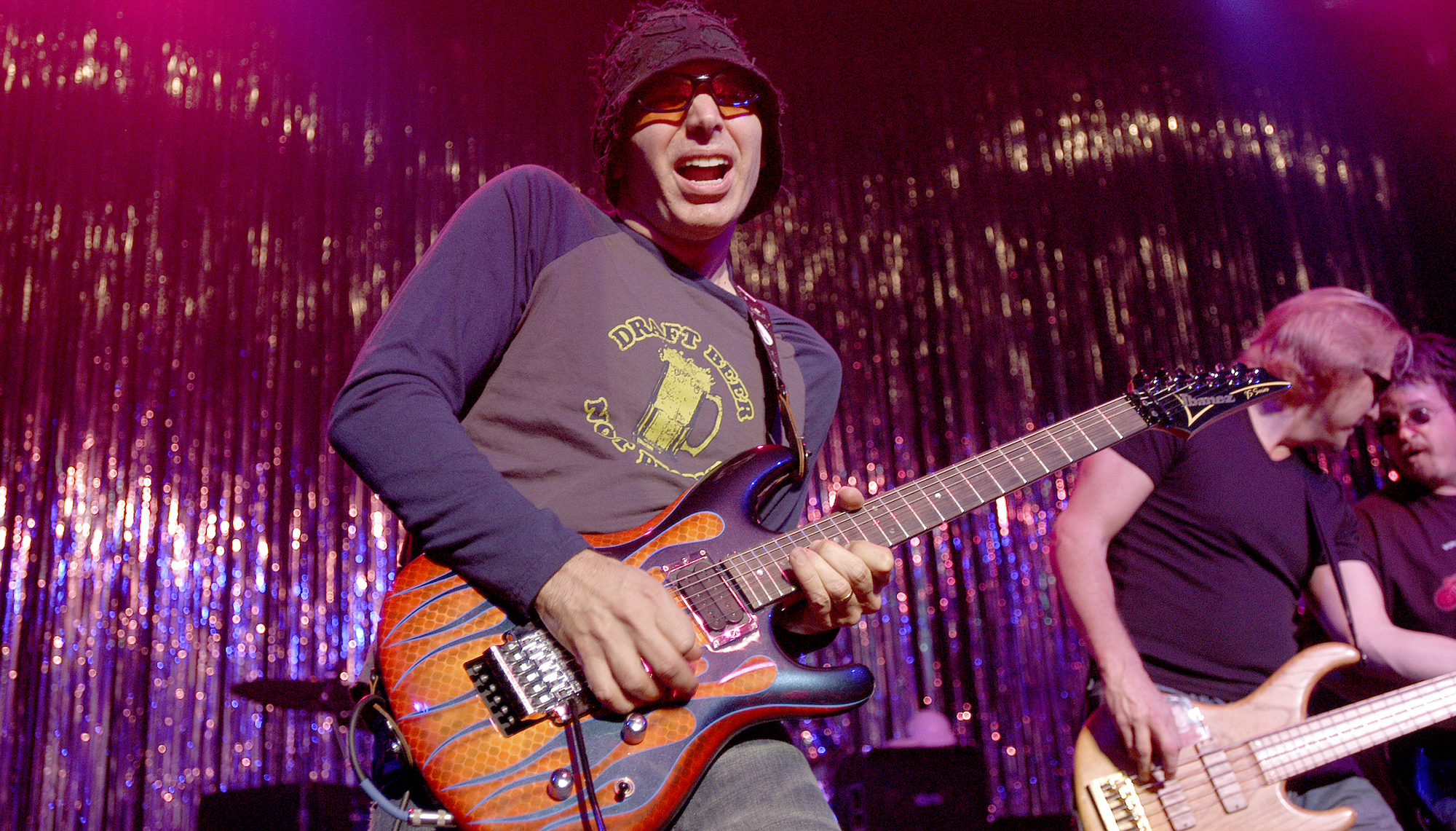“Only a guitar player would think it's OK to play bass like that!”: Joe Satriani’s best basslines (yes, he plays bass, too)
The phenomenal guitar playing of Joe Satriani needs no introduction, but he also handled bass duties on his first two albums

‘Isn't Joe Satriani a guitarist?’ I hear you cry. Well, yes he is, but in common with many other guitarists, Satriani also dabbles with playing bass – in fact, he personally handled all of the bass duties on his self-released debut album, Not Of This Earth, which paved the way for instrumental rockers everywhere.
You might think that a guitarist like Satch, who spends much of his time whizzing about the fretboard, might approach laying down the bass in a similar manner. But, surprisingly, his bass parts are actually quite simple, supportive, and groove-orientated.
“Guitar players play bass differently than bass players play bass, that's for sure,” he once told the Club Joe Streaming Sessions.
“I was listening to If There's No Heaven (from 2015's Shockwave Supernova) and I thought, ‘Only a guitar player would think that's OK, to play bass like that.’ I love playing distorted bass, but that's because I'm a twisted guitar player!”
In 1987, Satriani's landmark album Surfing With The Alien demonstrated his mastery of sweep picking, two-handed tapping, and whammy bar action. Back then the world was a different place, and big hair, pointy guitars, and ridiculous fashions ruled.
Nirvana had just formed and The Smiths had just split up. It was a time of change, and rock guitar was in the eye of the storm.
“You're looking at a guitar player who was still figuring out how to be a solo artist. Six months earlier, I had never done that. I had never walked on stage and said, ‘I'm Joe Satriani and this is my music,’ so l had no experience.”
All the latest guitar news, interviews, lessons, reviews, deals and more, direct to your inbox!
“I was always a guitar player in a rock band backing up a singer. I'd done that my entire life since I was a little kid. And then, quite by accident, I did a record and the label wanted me to do a tour. I thought they were crazy.”
Time has proved the label right and the rest is history, but let’s revisit that time and take a look at some of Satriani’s best basslines – plus a few tips on how to play them.
Not Of This Earth
For the title track of his debut album, Satriani plays a simple 8th note bassline that only uses three different notes – you can't get much more straightforward than that! Your main aim here should be to keep things tight throughout – the effect you get should be almost hypnotic in feel.
“I kept the rhythm section simple for very specific reasons. The chord progression is sophisticated and I had two distinct melodies that had to co-exist. If I had changed the bassline and the drums, the piece could've very easily deteriorated into one big mess.”
The Snake
Catchy to the Nth degree, The Snake’s opening bass riff merges funk-style slap bass with synthetic drums, processed guitars, and synth. In this particular case you should use you right hand 1st and 2nd fingers to hook under the strings and then pluck them in the general direction away from the bass.
Surfing With The Alien
Satriani’s second solo album, Surfing With the Alien, sounded like guitar music from the future when it was released in 1987. The title track features a driving, syncopated bass groove that keeps the song’s momentum going steadily until the end. It sounds great played with a pick or fingers, but the pick wins out for ultimate rock. Use alternate eighth-note picking throughout.
The Enigmatic
Satriani's syncopated bassline has each phrase starting on the up-beat; it should ultimately be played at the tempo of 162 bpm – but take it slowly at first and only try to play it faster as and when it feels comfortable.
Note how Satriani harmonizes the scale to produce a series of guitar chords for a very angular sounding composition.
Flying In A Blue Dream
In 1989, Satriani followed the surprise success of Surfing With the Alien with a sprawling 18-track album titled Flying in a Blue Dream. The title track remains a sucker-punch against the play-it-safe parameters of standard guitar music.
“This song embodied a spirit of experimentation on so many levels. I used an open F tuning for the rhythm guitars, and I tuned my ’64 P-Bass down to a low C. I don’t know why I didn’t just get a five-string to solve that problem!”
Hordes Of Locusts
Another of Satriani’s simple groove ideas. Notice how the initial dotted 8th/16th note rhythm helps push the part along and also how the rest that occurs on beat 2 of each bar allows the snare drum to become a momentary focus of attention.
Technically, you should aim to play this with downstrokes throughout and also make sure that you lightly mute the string with the palm of your right hand in order to achieve the required ‘chugging’ effect.

Nick Wells was the Editor of Bass Guitar magazine from 2009 to 2011, before making strides into the world of Artist Relations with Sheldon Dingwall and Dingwall Guitars. He's also the producer of bass-centric documentaries, Walking the Changes and Beneath the Bassline, as well as Production Manager and Artist Liaison for ScottsBassLessons. In his free time, you'll find him jumping around his bedroom to Kool & The Gang while hammering the life out of his P-Bass.
You must confirm your public display name before commenting
Please logout and then login again, you will then be prompted to enter your display name.






